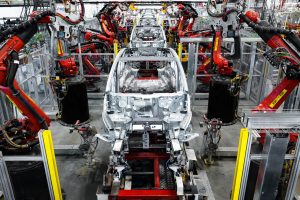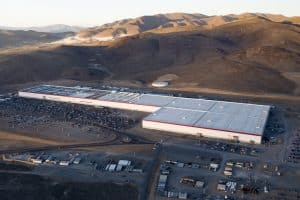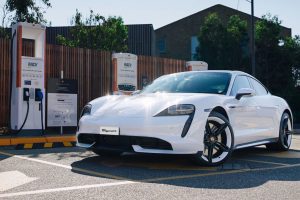Key Points
- 💰 Ford, GM, and Stellantis are expected to weather an estimated combined $2.9 billion loss from the UAW strike due to cost-cutting measures and efficiency initiatives.
- 🚗 The UAW’s agreements, including a 25% wage increase, will add $850 to $900 to the cost of every car Ford manufactures.
- 🏭 GM and Stellantis are adopting similar strategies to offset the strike’s financial impact, with Stellantis reporting a lower loss in profits compared to Ford and GM.
- 📈 Analysts expect minimal issues as the Detroit Big Three resume full operations, and inventory levels at dealerships held up reasonably well during the strike.
- 🤖 The UAW’s gains in the agreements may put some pressure on non-union automakers like Tesla, Toyota, and Honda.
- 🚫 The UAW couldn’t secure the right to organize all the battery plants the automakers are building in the United States, but they did win transfer rights for UAW-represented workers into specific new plants.
It appears that the Detroit Big Three’s losses from the UAW’s six-week strike would not be as substantial as initially feared. Thanks to initiatives such as cost-cutting measures, Ford, GM, and Stellantis should be able to weather an estimated combined $2.9 billion loss from the UAW strike.
The agreement’s 25% wage increase, restoration of cost-of-living allowances, and other benefits will add $850 to $900 to the cost of every car that Ford manufactures, as noted in an Automotive News report. The deal would also shave about 60-70 basis points from the automaker’s margins. Despite this, Ford noted that it expects to find efficiencies to offset the higher labor costs.
GM and Stellantis are expected to adopt similar strategies. Stellantis hinted as much on Tuesday, with the automaker noting that the strike cost it over $3 billion in revenue but only about $800 million in profits. That’s less than the estimated losses of Ford and GM.
Jonathan Smoke, chief economist for researcher Cox Automotive, noted that there will likely be minimal issues as the Detroit Big Three resumes full operations. “We are expecting minimal issues with factories getting back up to speed,” he said, adding that “inventory levels at dealerships held up reasonably well during the strike.”
Art Wheaton, director of labor studies at Cornell University’s School of Industrial and Labor Relations, also noted that the UAW’s deals against the Detroit Big Three would likely result in non-union automakers like Tesla, Toyota, and Honda feeling some pressure.
“You’re either going to have to pay more, or you’re going to have the UAW organizing outside… These are really big improvements for working class and lower-paid workers,” Wheaton said.
While one could argue that the UAW’s gains were significant, the union was not able to secure a green light to organize all the $28 billion worth of battery plants that the automakers are building in the United States with joint venture partners from South Korea. The union, however, did win transfer rights for UAW-represented workers into Ford’s new electric truck plant that’s being constructed in Tennessee, as well as its Michigan battery plant.





